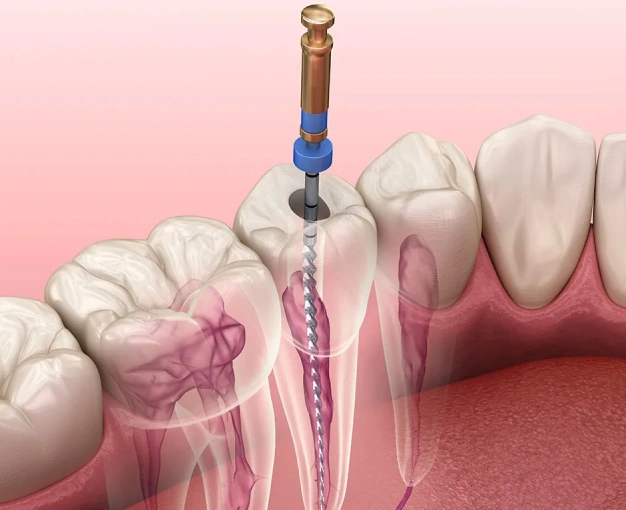What is Root Canal Treatment?

Root canal is a treatment used to repair or save a severely damaged or infected tooth. Root canal is an alternative to extracting the tooth. During root canal treatment, a dental expert works to remove the inflamed or infected pulp inside the tooth. It is then cleaned and disinfected before being filled and sealed. Root canal treatment eliminates bacteria, prevents infection, and saves the natural tooth.
Root canal treatment is needed when the pulp of a tooth becomes infected or inflamed. This can happen for a variety of reasons, including:
- Untreated cavities that have caused severe decay
- Multiple dental treatments on the same tooth
- Cracks or chips to a tooth
- Trauma or injury to a tooth
How Do I Know If I Need Root Canal Treatment?
There are some symptoms that may be indications that you need a root canal procedure. These include:
- Sensitivity to hot or cold sensations
- Swelling or tenderness of the gums
- Discoloration of the tooth
- Severe toothache
- Pimples on the gums
Root canal treatment is important to stop an infection before it has a chance to spread and cause more serious issues.
What Happens During a Root Canal Procedure?
Underneath your tooth enamel and the hard layer of dentin is a soft tissue called pulp. The pulp contains blood vessels, nerves, and connective tissue that help your tooth roots to grow as your teeth are developing.
- Exam and Treatment Plan: The first step to your root canal procedure is a thorough examination and X-rays. This will help your dentist determine the extent of your issue. Once your treatment plan is made, your dentist will be ready to complete your root canal procedure.
- Numbing the Tooth: Local anesthesia is administered so you will not feel anything during the procedure. Once numb, a small opening is made in the crown of the tooth.
- Accessing the Infected Pulp: In this step a small hole is made in the crown of the tooth. This provides the dentist with access to the pulp chamber and root canals of the tooth. The dentist will use special tools to remove any infected or damaged pulp.
- Cleaning & Disinfecting the Canals: Once the infection is removed, the canals are cleaned and disinfected to remove any remaining bacteria to prevent future infections from occurring.
- Filling and Sealing the Canals: After the area is completely cleaned, the root canals are then filled. Sealing the canals is crucial to prevent bacteria from entering the area again. A filling is then applied to cover the hole that was made in the tooth to access the canal.
- Placing a Protective Crown: Most people will also require a dental crown to be placed after a root canal. This will not only protect the tooth but ensure that it can return to its full function after the root canal procedure.